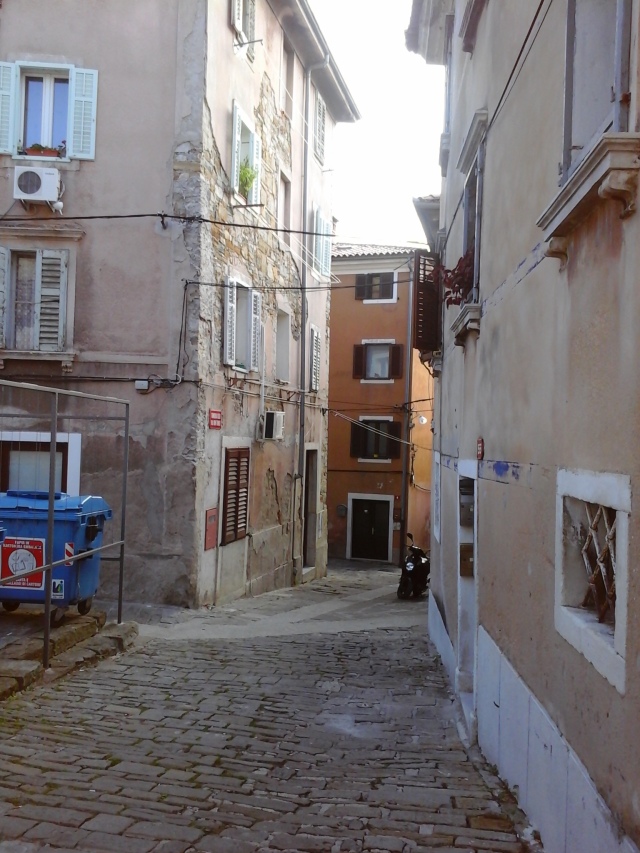My curiosity incited by correspondence with the aforementioned Arslan Levantinov, he middling bureaucrat detained by fate in a country that boils its citizens alive at the same time he has a particular fear of being burnt that stems from a childhood accident at a stove, I thought I might start by checking Wikileaks–I know. it’s hard to take an organization with such a Lewis Carrolesque title seriously, yet what follows is a genuine document regarding tortures that include those Mr. Levantinov most fears:
(As will virtually all to do with Uzbekistan, comedy persists, here commencing with ‘The report includes recommendations to the government of Uzbekistan to end
torture, and urges the Uzbek government to:’
We must assume many a belly laugh at this point among the official readers of the document, imagining the fox baby-sitting the hen house instructed to be sure lights out and quiet by 7:30 p.m.)
Uzbekistan: Torture Endemic to Criminal Justice System
For Immediate Release
Uzbekistan: Torture Endemic to Criminal Justice System
UN Committee Should Press Tashkent to Publicly Condemn and End the Use of
Torture
(Geneva, November 7, 2007) – Uzbekistan’s government continues to allow
torture and ill-treatment in the criminal justice system without holding
perpetrators accountable, Human Rights Watch said in a report released
today.
Uzbekistan’s record is coming up for scrutiny before the United Nations
Committee Against Torture (CAT) on November 9, 2007. November also marks
the five-year anniversary of the visit to Uzbekistan by the UN Special
Rapporteur on torture, who concluded that torture in Uzbekistan was
“systematic.”
The 90-page report, “Nowhere to Turn: Torture and Ill-Treatment in
Uzbekistan,” documents widespread torture that goes largely unpunished.
The report finds that torture and ill-treatment are ignored and overlooked
by investigators, prosecutors, and judges, and generally hushed up by the
media and the government.
“Uzbekistan wants to make its multilateral partners believe that it has
put an end to torture,” said Holly Cartner, Human Rights Watch’s Europe
and Central Asia director. “But official statements simply don’t square
with reality.”
The report details the cycle of abuse that starts at the time of an
individual’s detention and continues through conviction or beyond to
compel confessions or other testimony. In cases documented by Human Rights
Watch, police agents manipulated and prevented detainees from having
access to counsel of their choice. They beat, kicked and threatened
detainees soon after they were first detained, when detainees are cut off
from access to third parties or avenues where they might seek redress.
Police and security agents abuse detainees and threaten witnesses,
detainees’ families, and sometimes even lawyers to deter them from
pursuing accountability.
“This is no marginal problem,” said Cartner. “The Committee Against
Torture needs to recognize that ill-treatment in Uzbekistan is endemic to
the criminal justice system and not just a problem caused by a handful of
rogues.”
While the Uzbek government has given examples of police held accountable
for torture, no one was held accountable in the cases documented by Human
Rights Watch. Judges did not investigate torture allegations that criminal
defendants made in court testimony, and instead alleged that the
defendants were lying or told them they should have filed a complaint
during the investigation. A 39-year old defendant in one of the trials
monitored by Human Rights Watch explained why he could not do this: “I
never had a confidential meeting with a lawyer. I know that the pressure
would have increased if I had complained. I am a human being. I am not
made of iron. Even animals scream when you beat them. I was scared. That
is why I did not complain.”
Common methods of torture and ill-treatment include beatings with
truncheons and bottles filled with water, electric shock, asphyxiation
with plastic bags and gas masks, sexual humiliation, and threats of
physical harm to relatives.
The report includes recommendations to the government of Uzbekistan to end
torture, and urges the Uzbek government to:
. Take immediate and concrete steps to comply with its obligations
under the Convention against Torture and other Cruel, Inhuman or Degrading
Treatment or Punishment;
. Implement in full the February 2003 recommendations issued by the
UN Special Rapporteur on torture following his visit to Uzbekistan;
. Publicly acknowledge the scale of torture in Uzbekistan;
. Conduct a robust, nationwide investigation into the practice of
ill-treatment and torture;
. Declare what measures it will be taking to ensure the prohibition
on torture and other ill-treatment is fully enforced and respected in
practice;
. Make this information available and accessible to the local
population, through the media and other appropriate forums;
. Ensure that detainees are informed of their rights, that they have
access to confidential meetings with a lawyer of choice, and can
communicate unimpeded with their lawyer at trial; and,
. Hold perpetrators of torture and ill treatment accountable to the
full extent of the law and ensure that detainees can make complaints about
torture without fearing retribution.
The report also calls on the Committee Against Torture to make full use of
the opportunity provided by its review to express concern about the
continuing widespread use of torture in Uzbekistan, and to call on the
authorities at the highest level to publicly condemn the use of torture.
The committee should also emphasize the crucial role played by civil
society groups, independent media and international organizations in
efforts to combat torture and ill-treatment, and call on the government to
ensure that these actors are able to function freely and effectively in
Uzbekistan.
Human Rights Watch also called on the international community to support
the work of the UN’s anti-torture bodies by advancing the implementation
of their recommendations as part of their relations with the Uzbek
government.
“International actors should take a principled stance and make ending the
use of torture a key component of any dialogue with the government of
Uzbekistan,” said Cartner.
To view the Human Rights Watch report, “Nowhere to Turn: Torture and
Ill-treatment in Uzbekistan,” please visit:
http://hrw.org/reports/2007/uzbekistan1107/
For audio testimony by Uzbek citizens who were tortured in detention (with
English translation and voicing), please visit:
http://hrw.org/audio/2007/english/uzbekistan11/uzbeki17229.htm
For more information, please contact:
In Geneva, Andrea Berg (English, German, Russian): +44-163-760-9963
(mobile)
In Geneva, Veronika Szente Goldston (English, Finnish, Swedish, Hungarian,
French): +1-917-582-1271 (mobile)










